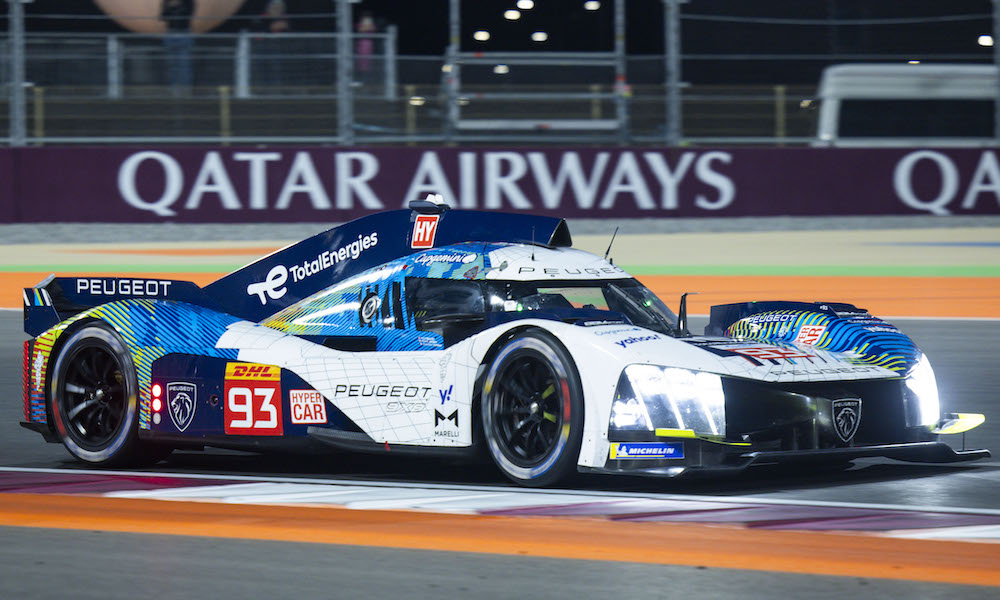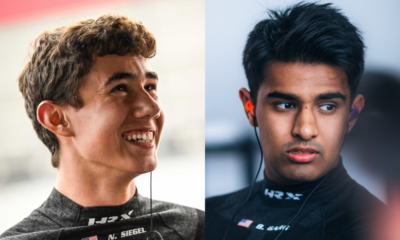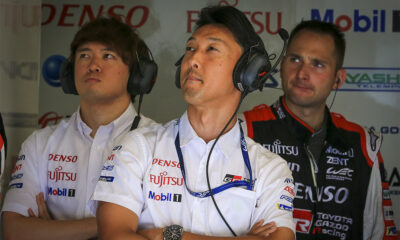
Photo: Julien Delfosse/DPPI
Peugeot is happy with ‘everything but the result’ after a suspected fueling issue cost it a near-certain podium finish in the FIA World Endurance Championship season opener in Qatar according to Stellantis Motorsport director Jean-Marc Finot.
The No. 93 Peugeot 9X8 of Jean-Eric Vergne, Nico Mueller and Mikkel Jensen appeared to be on course to finish second behind race winners Porsche Penske Motorsport in Saturday’s Qatar 1812km, until Vergne suddenly slowed in the closing minutes before crossing the line in seventh place.
Speaking to reporters gathered after the race, Finot said Peugeot is still working to fully identify and understand the issue, but suspected that a fueling issue was likely to blame for the team’s woes.
Vergne brought the No. 93 Peugeot in for a late fuel stop on lap 318 of the 335-lap contest, which is where the issue likely developed.
“Unfortunately, what happened in the last lap was not scheduled,” said Finot.
“We have to analyze, but I think we had an issue with the fueling of the car when we did the splash and dash. We didn’t have the expected rate of fuel. We have to analyze.”
As a result, Vergne ran out of fuel, with Finot revealing he completed the final lap on hybrid power as the No. 93 crawled to seventh place while a trio of Porsche 963s locked out the podium.
“So hybrid mobility is also useful for motorsport,” Finot jokingly said.
“We went back to the pits with zero emission. But I think we had a mistake or an issue. We deserved the result. We have to be better next time.”
Despite the late heartbreak, the race at Lusail International Circuit proved to be the 9X8’s best performance in WEC to date, with Mueller charging from sixth place to lead in the opening hour.
Finot spoke with satisfaction about the wingless car’s performance in Qatar, in what will be its final race before Peugeot is set to introduce an updated specification at the next round in Imola.
“So far, we are very happy that the 2023 car was fast and was in the game,” he said.
“With the power we got and the weight we got, it means that the design of this car that has been designed on the 2021 regulations is okay.
“I am proud of what the team did. The operation this weekend, it was quite okay.
“We didn’t expect to lead the race in the first hour and to fight for the podium or for the victory.”
The characteristics of the Lusail circuit, where WEC raced for the first time on Saturday, also likely also played to the car’s strengths according to Finot, comparing it to other tracks where the 9X8 performed strongly in the past.
“For this car, there are less low speed corners where we are missing traction with our 31 cm tires, so far less than in Fuji and in Bahrain,” he said.
“It’s also a very smooth tarmac, so we can enjoy all the ground effect without any perturbation, without any porpoising risk.
“Like Monza, like Le Mans, it’s the kind of track that suits very well to the 2023 design.”
Finot said the outcome of Saturday’s race ‘reminds him of Le Mans 2016,’ when Toyota famously lost out on overall victory with late issues.
“We have to digest this,” he said. “We’ll be back in Imola.
“Thinking the car could be competitive, with the 2024 upgrade. It will depend on the weight and the power we will have, but we are on a good way. Everything is positive, but the results.”

























